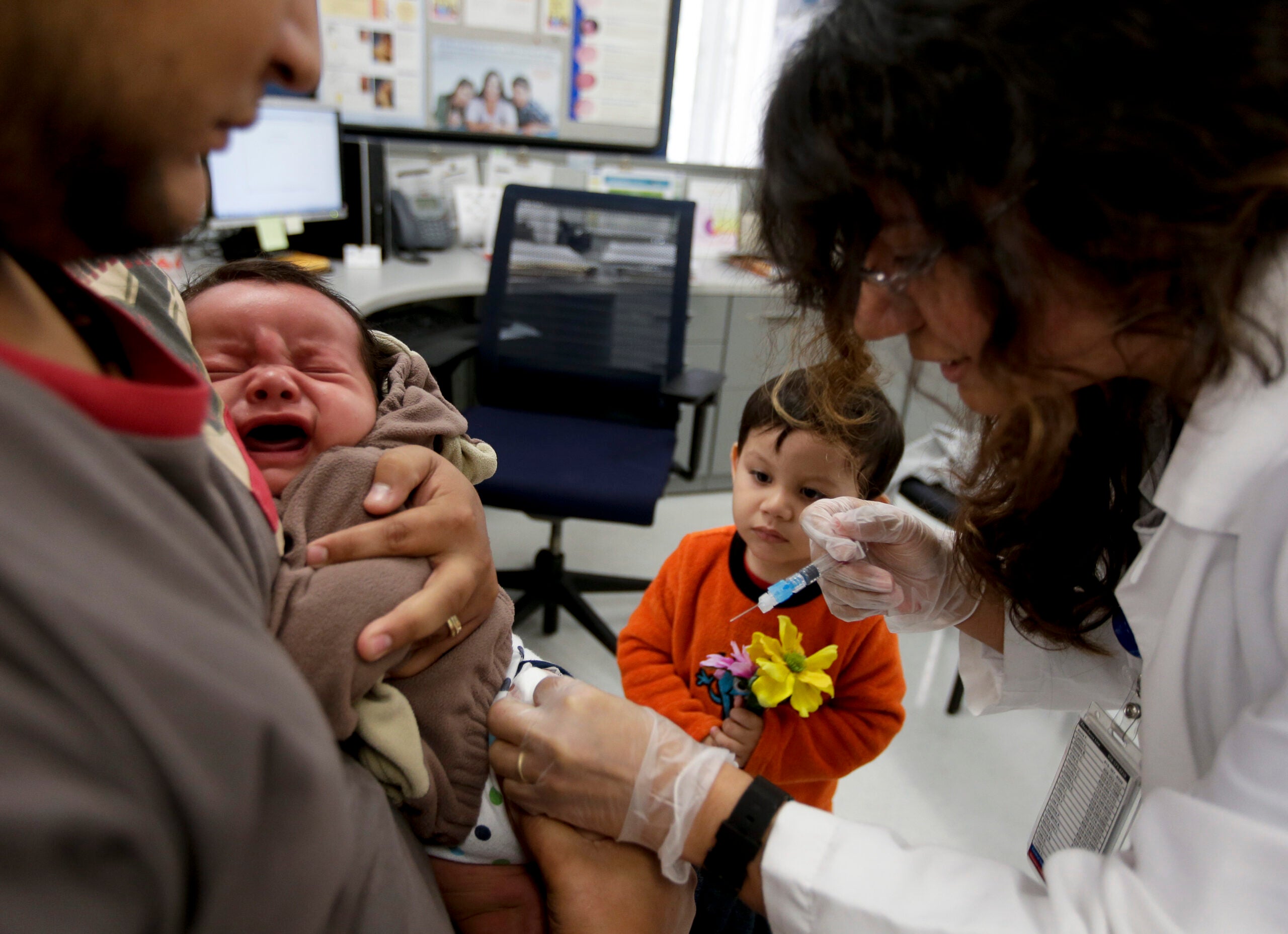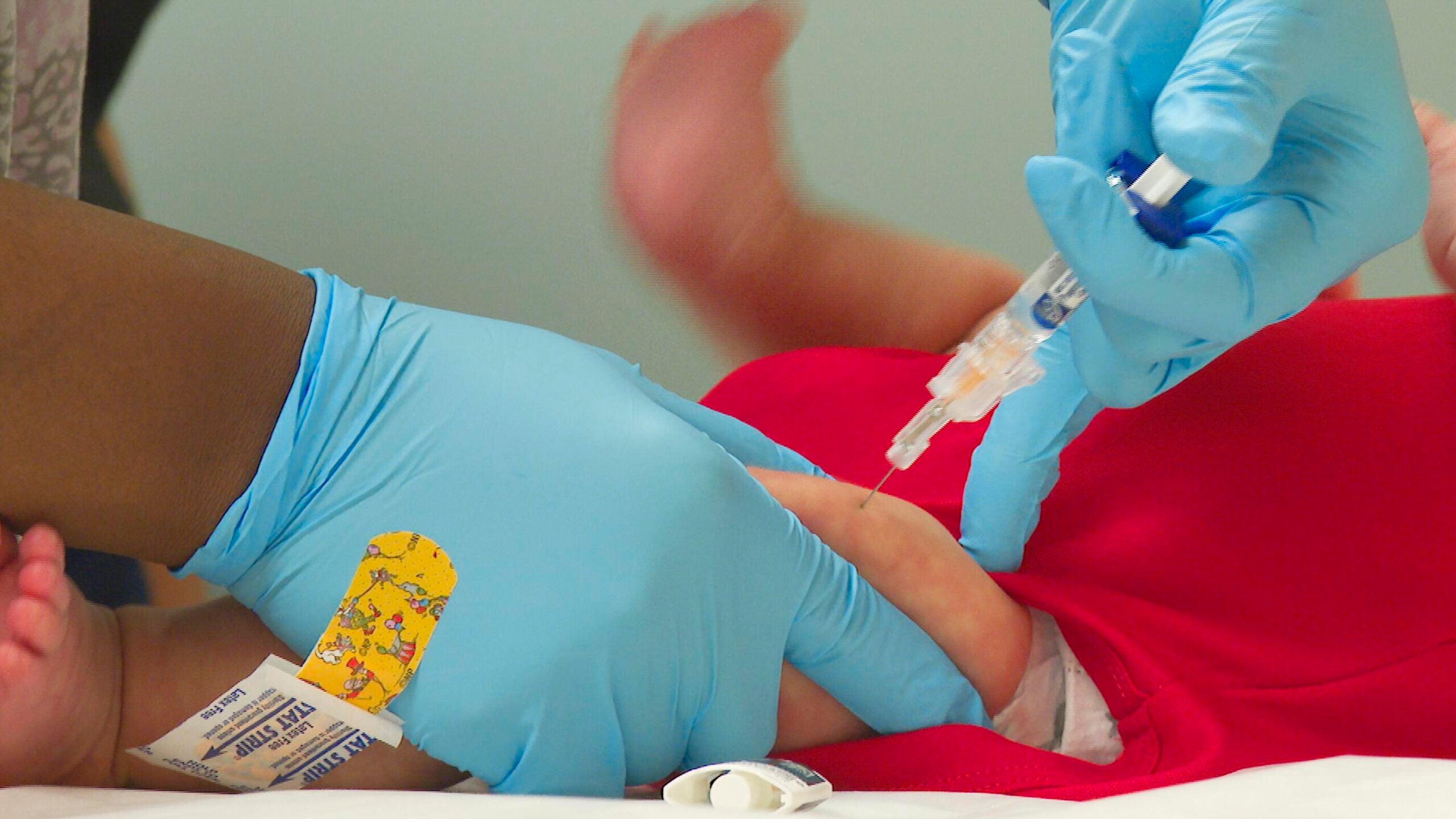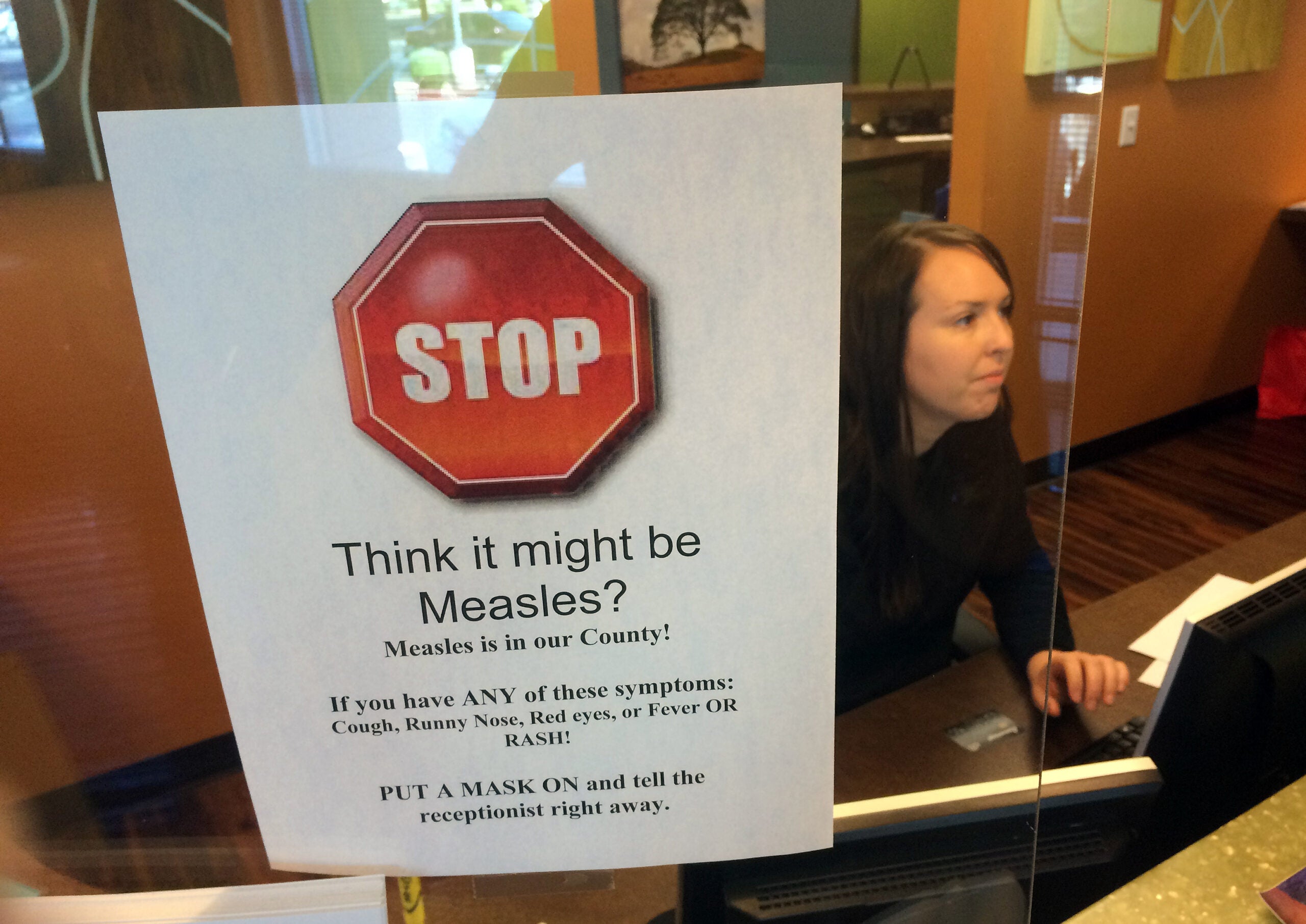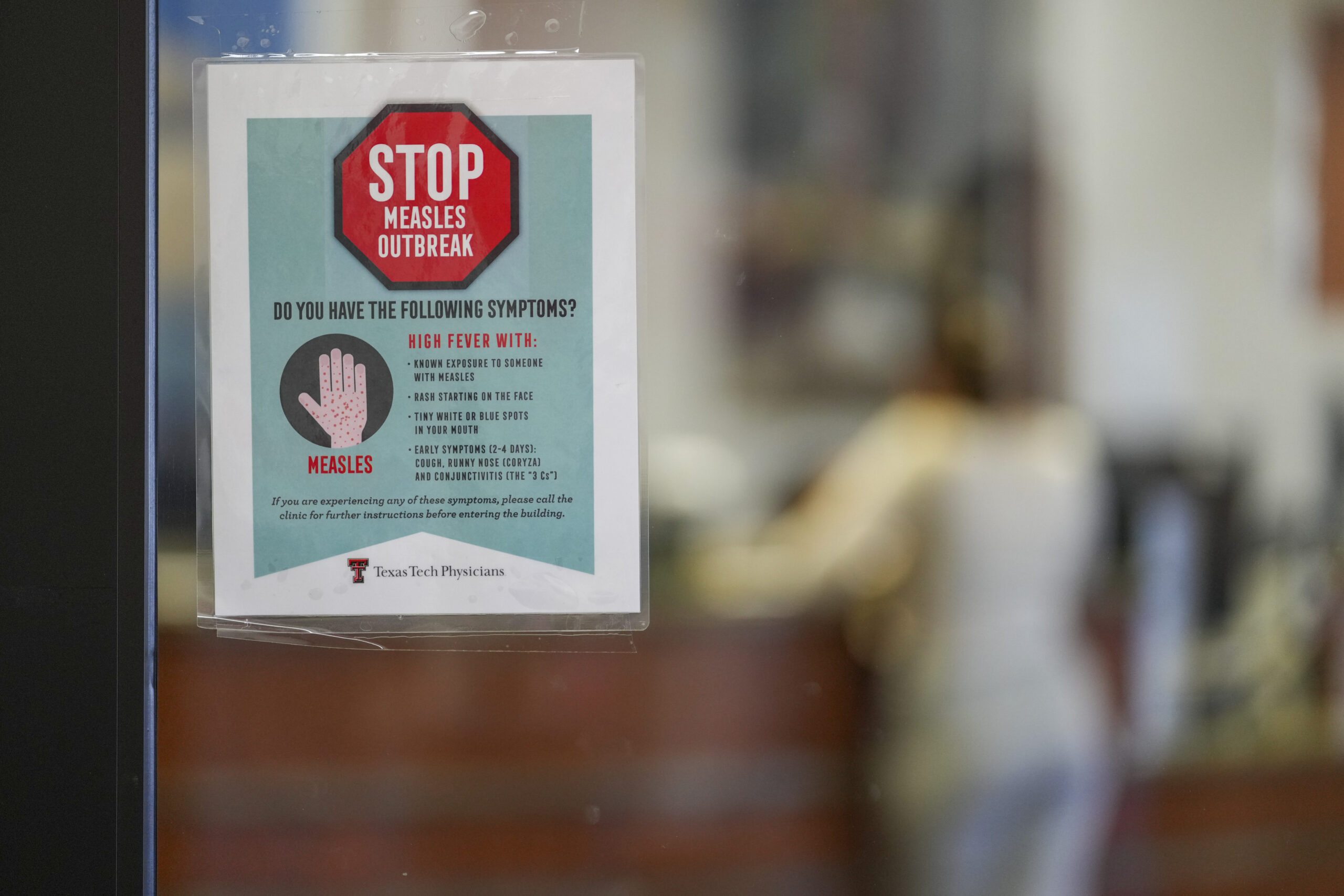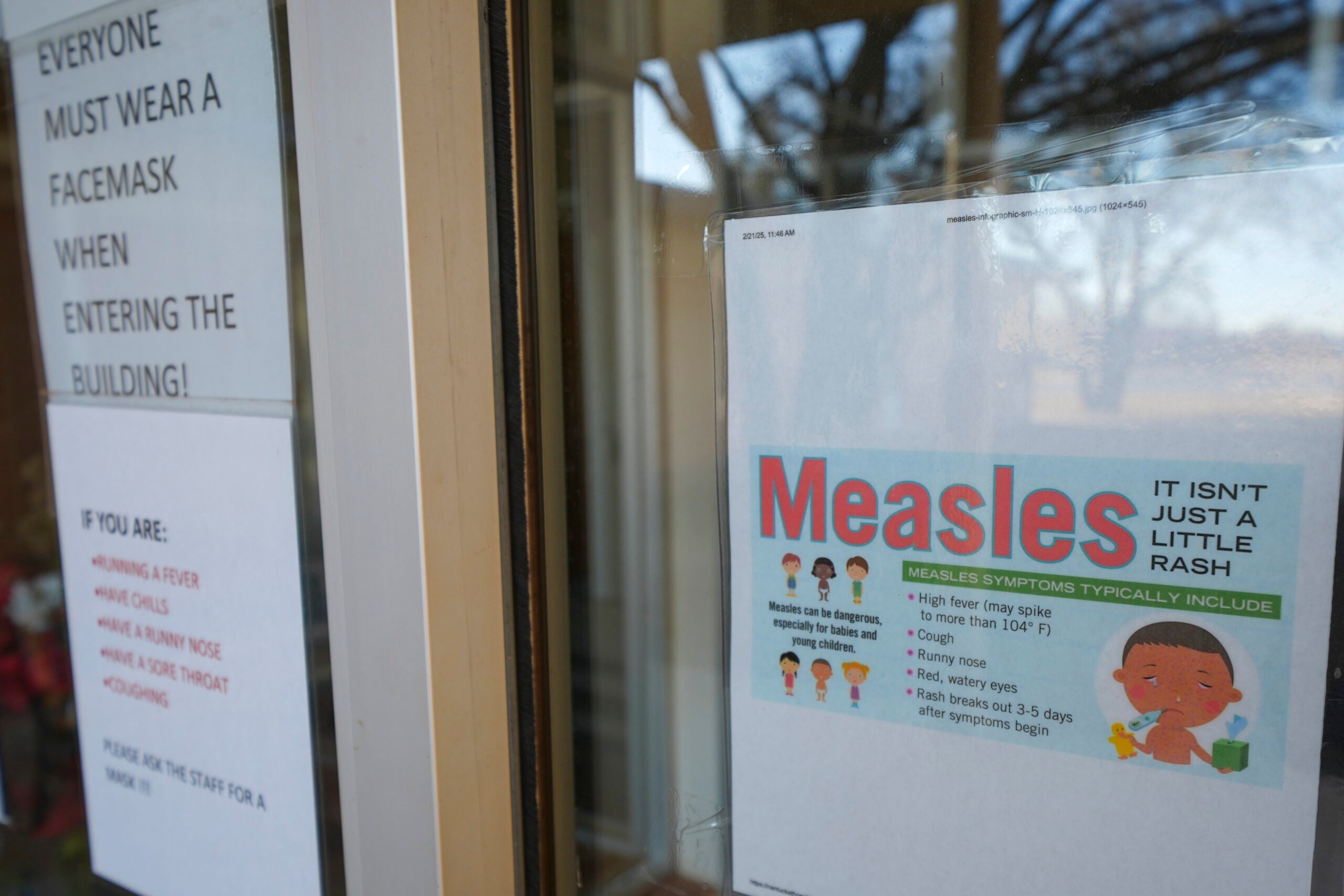Cases of whooping cough are on the rise in Wisconsin, especially in the northeastern region.
Since the start of April, Brown County Public Health Department has investigated more than 65 cases and confirmed 11 cases of the bacterial disease. The City of DePere’s Health Department has investigated 20 additional cases this year and confirmed two people with pertussis.
It’s a major increase from last year, when Brown County only had one case of the disease.
News with a little more humanity
WPR’s “Wisconsin Today” newsletter keeps you connected to the state you love without feeling overwhelmed. No paywall. No agenda. No corporate filter.
Statewide, there have been 43 confirmed and probable cases of whooping cough as of the end of April, according to provisional data from the state Department of Health Services. By comparison, there were 51 cases in the state in 2023.
A DHS spokesperson said Minnesota is also experiencing an uptick and has already seen 54 cases this year.
Brown County Deputy Health Officer Dr. Katrina Nordyke said the disease is not seasonal like influenza, but it does seems to become more active every few years. Nordyke said this year, the county has seen some clusters of cases in area high schools.
“You’re not exactly sure if you know it’s family members, workplaces, schools,” she said. “A couple of schools have sent letters with education and information. We work closely with them to provide the information to help them also encourage people who are ill to stay home.”
Whooping cough, known formally as pertussis, is a respiratory illness caused by a bacteria. The disease is most severe in infants and young children and is characterized by prolonged coughing that leaves patients gasping for air.
But Dr. Mary Beth Graham, infectious disease physician for the Froedtert & the Medical College of Wisconsin health network, said the disease can also be fairly serious in older children and adults.
“Kids and teenagers, when they have it, it’s usually coughing fits that can end up in vomiting,” she said. “One of the most annoying things about pertussis is that even after somebody has been treated, that cough, especially in adults, can last for weeks to months.”
Health experts say lack of vaccination allow disease to spread
Graham said the normal vaccination schedule for children includes several shots to prevent pertussis before age 6 and a booster shot during the preteen years.
But she said after childhood, many young and middle-age adults don’t stay up to date on the vaccination, known as Tdap, even though it’s recommended every 10 years. The exception is people who are pregnant, who typically receive the shot in their third trimester.
“We know adults can get (pertussis) and we know they can then potentially spread it,” she said. “So I think it’s important that they do look (at their vaccination status) and hopefully will get it.”
In recent years, there have also been more children in the state who have not received recommended vaccinations like the one for pertussis. The lastest state data shows 10 percent of K-12 students in the 2022-23 school year did not meet minimum immunization requirements.
Nordyke said Brown County has seen an increase in the number of children who are behind on vaccinations. She said the county has been working strategically to get kids and families caught up.
“We work closely with our partners at different community organizations to hold clinics throughout the community that made me more accessible to different parts of the population,” she said.
Graham said Wisconsin will likely continue to see cases of whooping cough this year. But she said state health officials are generally proactive about notifying doctors and hospitals of disease outbreaks. That should help providers be more proactive about promoting the vaccine to eligible patients, Graham said, and getting medications that can prevent infection to patients who have been exposed to the disease.
Wisconsin Public Radio, © Copyright 2025, Board of Regents of the University of Wisconsin System and Wisconsin Educational Communications Board.

